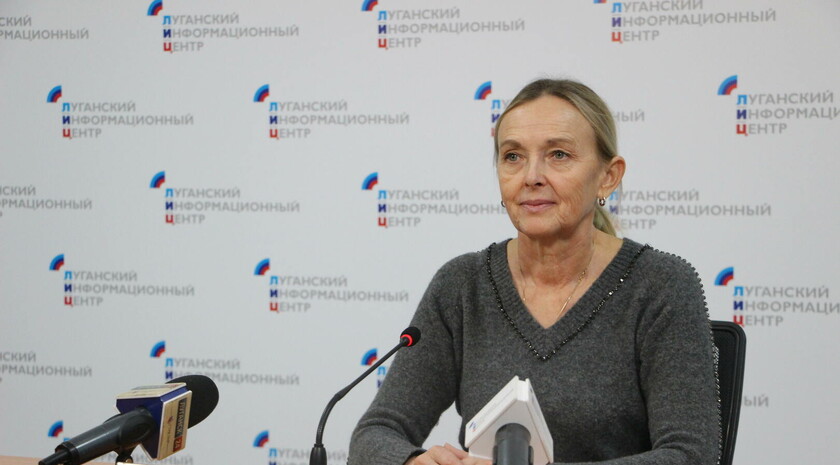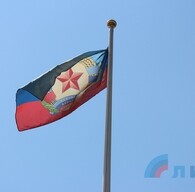A lack of the security guarantee mechanism prevents progress in the opening of two new crossing points and the search for missing persons, Lugansk People’s Republic representative in the Contact Group humanitarian subgroup, head of the LPR working group on prisoner exchange Olga Kobtseva said at a press briefing at the Lugansk Media Centre.
Kobtseva said that the subgroup session had yielded no results due to the position of the Ukrainian representatives.
“The key problem in reaching accords on opening crossing points and the search for the missing is a lack of the security guarantee mechanism,” she said adding that as before, Kiev avoids fulfilling the commitments on dropping criminal prosecution against the released persons.
Earlier, Kobtseva said that Ukrainian representative in the Contact Group humanitarian subgroup Galina Tretyakova had taken time-out to coordinate the mechanism of security guarantees which are needed for works along the contact line and for the launching of the crossing points.
In March 2020, the LPR and Kiev reached an accord to launch two new crossing points in the Schastye and Zolotoye areas. The works to develop the facilities began in July. Having failed to coordinate with the LPR a number of key points in the crossing points operation, including security issues, Ukraine unilaterally opened both crossing points on November 10. The Republic called it a provocation that threatened the life and health of persons who crossed the contact line and demanded that Kiev begin a dialogue to remedy the problems that stood in the way of full-fledge checkpoint operation. Currently there is only one official checkpoint on contact line in the LPR area of responsibility in Donbass and it is accessible via the bridge in the vicinity of Stanitsa Luganskaya.
LPR representatives repeatedly said that Kiev lied about confirming the security guarantees for opening the new checkpoints. Ukraine deliberately refuses to provide round-the-clock security guarantees in the area of the Pervomaisk-Zolotoye checkpoint and sabotages the opening of the new crossing points in the Schastye and Zolotoye areas. LPR representative to the Minsk talks, the Republic’s Foreign Minister Vladislav Deinego said that Ukraine cannot provide answers to the questions regarding the opening of the new checkpoints, so the decision on simultaneous opening of “Lugansk-Schastye” and “Pervomaisk-Zolotoye” would be postponed until Ukraine had provided written confirmation of the earlier accords.
The Additional Measures to Strengthen the Ceasefire, agreed by the Contact Group members and effective since 00:01 July 27, 2020, ban offensive and commando operations, use of unmanned aerial vehicles, deployment of heavy armaments in or in proximity to residential areas etc. They envision punishment for violators and the use of the coordination mechanism to respond to ceasefire violations. Return fire is allowed in case of offensive, if the order is given by the leadership of Ukrainian forces or DPR and LPR People’s Militias after the unsuccessful attempt to use the coordination mechanism. The Contact Group shall be notified about such orders.
The Ukrainian government launched the so-called anti-terrorist operation against Donbass in April 2014. Conflict settlement relies on the Package of Measures for the Implementation of the Minsk Agreements, signed on February 12, 2015 in the Belarussian capital by the Contact Group members and coordinated by the Normandy Four heads of states (Russia, Germany, France and Ukraine). The document provides for ceasefire and withdrawal of heavy weapons from the contact line.
The document provides for comprehensive ceasefire, withdrawal of all heavy weapons from the contact line, starting a dialog on reconstruction of social and economic ties between Kiev and Donbass. It also envisages carrying out constitutional reform in Ukraine providing for decentralization and adopting permanent legislation on a special status of certain areas of the Donetsk and Lugansk regions. *i*s


